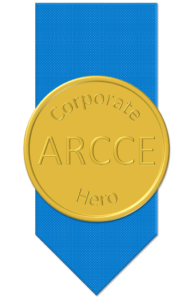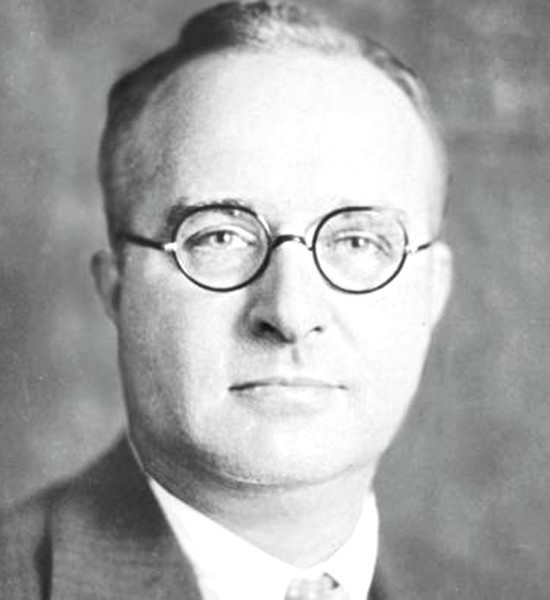ARCCE
Welcome to the Awards Recognising Commitment to Corporate Ethics.
These awards celebrate those groups or individuals who have shown admirable commitment to the ethos of the global corporate body and its investors.
These “Heroes”, in every sense of the word, embody the creed of the modern world.
Shareholder value and the accumulation of profit takes precedent over all moral, social, and economic concerns.
By going beyond the call of duty, no matter the cost, these winners have shown the world exactly what it takes to meet the needs and expectations of company investors.
The Winners
Thomas Midgley Jr
J. Michael Pearson
The BBC
Our inaugural award goes (posthumously) to Thomas Midgley JR.
Many people have been said to have changed the world, but it is only Thomas who can testify to have truly managed it.
In the 1920’s, whilst working for General Motors, it was Thomas that first had the notion to mix Tetraethyllead with petroleum to prevent knocking, and improve engine performance.
To assuage those pesky naysayers who said lead was dangerous, Thomas would pour Tetraethyllead on his hands and inhale its vapours. Way to go Thomas!
(The fact that Thomas had to be hospitalised, twice, for lead poisoning is coincidental and, irrelevant.)
The use of tetraethyl as a petrol additive has caused, permanently, more lead exposure than any other source of lead worldwide. Globally contaminating air, water, crops, the ground we walk on and ourselves, which constitutes an achievement by anyone’s standard.
It’s not as though nobody knew that there were problems, but that didn’t stop us. The world knew that lead was bad. Plenty of reports were commissioned and then ignored, and potential whistle-blowers were threatened into compliance. The consumer got what they wanted, which was cost effective performance, and satisfaction.
Tetraethyl-lead is still in use in aviation fuels and some countries still swear by it as a petroleum additive.
But it doesn’t end there. It was Thomas and his team at GM that gave the world Freon, a Chlorofluorocarbon used in refrigeration and aerosols. Existing refrigerants such as ammonia or sulphur dioxide were considered dangerous and toxic. The end user needed an alternative, and consumer happiness is the corporate body’s raison d’etre.
It was the use of Chlorofluorocarbons that burned a hole in the earth’s ozone layer. Although this was technically a thinning. No need to be unfair is there? It’s not as though their replacements, for instance Hydrofluorocarbons, are much better. Don’t hear anybody complaining.

At the age of 51 Thomas contracted, severely disabling, poliomyelitis. Ever the pioneer and inventor, he developed a system of ropes and pulleys to assist himself in getting out of bed. Sadly, Thomas died in 1944, at the age of 55, of strangulation, after becoming entangled in this device.
Cruelly forgotten in the annals of corporate history, the important thing to remember is that Thomas’s true achievement was in making money for GM and its investors and providing the world with solutions to engine knocking, refrigeration, and the inconvenience of being a bit hot and smelly.
Thank you, Thomas. The Award Recognising Commitment to Corporate Ethics goes to you.
J. Michael Pearson is the CEO’s, CEO.
Why call it a monopoly, when you can call it market consolidation.
Mike wins the award for his time at Valeant Pharmaceuticals International. (Now Bausch Health Companies Inc.)
Initially a consultant, Mike became CEO of Valeant in 2008, and took this teeny-weeny little $2.1 billion California company trading at $13 a share, to an $80 billion behemoth trading at $252 by simply following one simple precept.
Sick people will pay anything to stay alive.
Talk about a goldmine. Mike realised that research and development of new and improved medicines was for suckers. By reducing costs, schmoozing hedge funds, and hoovering up as many pharmaceutical companies as possible, Valeant could corner the market on brand name and generic drugs and then, and this is the magical bit, hike up prices on all of them. Especially the specialist ones.

The costs get passed onto to the health insurance providers and then turn into increased premiums for the customer. Easy, and victimless. So what if people get booted from their medical providers because of the cost of their medicines, and can no longer afford to live? Plenty more sick people where they came from right?
Mike would have gotten away with it too, if it hadn’t been for those pesky, meddling, short sellers. And Pharma Bro Martin Shkreli hadn’t smirked and gurned his way into the hearts of a nation and drawn attention to something that was previously, perfectly acceptable practice. And some dillweed hadn’t submitted a direct billing invoice instead of going through Philidor Rx. Whoopsie!
Mike gets the Award Recognising Commitment to Corporate Ethics for placing shareholder value and satisfaction over any, irrelevant, moral concerns.
Way to go Mike.
The BBC knows its target audience.
Until September 2020, when he will step down in favour of Tim Davie, Tony Hall, Baron Hall of Birkenhead, is the current Director General of the British Broadcasting Corporation.
For the curious, the British Broadcasting Corporation, or BBC, is a state owned, publicly funded, public service, radio and television, broadcaster that has the right to surveille the general public in their own homes and, if they don’t like what they see, send in the bailiffs.
This is because, In the UK, anyone can own a pet or have a child, but everyone needs a license to operate a television.
The BBC has an annual turnover of around £5 billion, and you get plenty of bang for your buck.
They provide 11 national radio stations, including the BBC World Service and its 33 language variants, 8 regional and 40 local radio stations.
The BBC provides 8 national television channels, which includes BBC Parliament. (Not a popular watch, but once we get those MPs on roller-skates, you watch those ratings soar.)
There are an additional 6 regional and 12 local studios for localised broadcasting.
Internationally, the BBC controls, or has a stake in, 11 subscription or free to air television channels with a further 3 funded from the British license fee.
That’s a whole lot of “If you know what’s good for you.”
Under the control of Baron Hall, the BBC has figured out that an effective way of getting lots of lovely, lovely money is to take law abiding UK citizens, and turn them into potential criminals.
Beyond a global pandemic, recession, poverty, and the constant threat of violence on a nation’s streets, the BBC has added a new terror to old age. Until the First of August 2020 the license fee was free for pensioners over the age of 75.
Not anymore. Any old person, not in possession of a license to operate a television, is now a miscreant.
On the 4th of August 2020, three days after the removal of this old age benefit, the BBC has sent out letters informing these potential fine payers that they are now subject to BBC law. “Pay up, or we’ll send the boys round.”
Age UK’s “Later Life in the United Kingdom” report of May 2019 indicated there were 5.4 million over 75’s living in the UK. With a colour TV license at £157.50 (£53 for a black and white because it is still 1967 in Britain apparently), the over 75’s represent a potential revenue stream of up to £850 million per annum at any given time. Or at least they do until the stress wipes them all out.
Costing £38 million and employing 800 people to implement, this is totally worth it. Whilst these confused and vulnerable, freeloaders, will be “means tested”, that will take a while. In the meantime, it’s warm out so it’s not as though they can’t use their yearly heating allowance.
Heating and food, or the BBC? It’s a no brainer.
The BBC, still pining for those pre 1954 days when they were a monopoly, has provided high quality programming since 1927. They have selflessly provided the UK, and the world, with award winning entertainment and documentaries, groundbreaking satire, ageist news outlets, sexist panel shows, Sachsgate, Jimmy Saville and, where would we be without their left-wing bias? Nowhere, that’s where.


Baron Hall and the BBC have realised that there is no better way to make money, than to take it from people who can’t fight back. Candy from a baby.
There have been a few teething problems. That’s par for the course. The website hasn’t functioned properly, and criminals are now targeting the elderly with bogus, threatening, letters demanding payment.
Some opponents to the BBC’s monetisation of the over 75 have threatened a payment strike.
The BBC is too mighty to possibly be swayed by such machinations. They have something the strikers don’t. Royal Charter. The BBC laughs in face of public opinion and need.
Baron Hall has suggested that the current licence fee, an opt-in system, should be scrapped and be replaced with a household tax. A mandatory, wealth indexed, tax on all households irrespective of whether or not they own a television or radio. Brilliant.
It’s this heady combination of greed, legal authority, and incompetence that makes the BBC, the envy of the corporate world, and thoroughly deserving of the Award Recognising Commitment to Corporate Ethics.
Good on yer Auntie Beeb!





